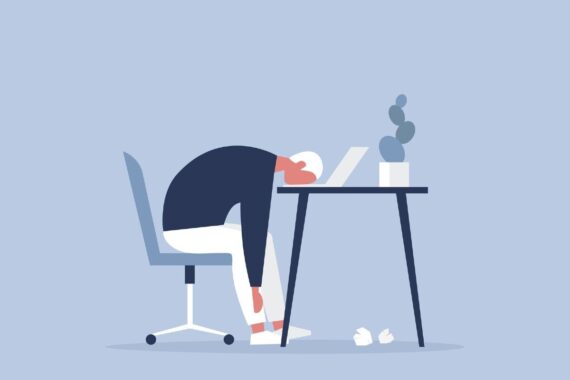Please hold – your assisted death is important to us

Dr Burnt Out reflects on the assisted dying bill, warning that GPs will be left to pick up the pieces if the system fails patients
Last month, MPs voted Kim Leadbeater’s assisted dying bill through the House of Commons by 314 to 291 votes. It will now go to the House of Lords for further scrutiny, but essentially this means that assisted dying will almost certainly start at some stage over the next few years.
Medical bodies such as the Royal College of GPs, Royal College of Physicians and the BMA have been studiously neutral in the lead-up to the vote. Despite their neutrality, however, the BMA gave detailed feedback and advice to MPs regarding the Bill’s progress. I’ve previously made clear my feelings on this: true neutrality means staying completely silent, and certainly not giving the impression of taking sides by giving assistance to one side of a debate before the law has been changed.
As this legislation edges closer to reality, it coincides with sweeping NHS reforms and an optimistic vision of a tech-enabled healthcare future. Just this month, the Government unveiled its 10-year plan for the NHS, placing technology front and centre. From AI diagnostics to remote monitoring, the goal is clear: streamline, digitise, deliver more with less.
Among these innovations is NHS drone technology. It’s already being trialled for transporting chemotherapy drugs and pathology samples, but its potential scope is much broader. Services that once depended on human contact may soon rely on machines. In theory, it’s efficient. In practice? Let’s imagine:
A busy GP is on call in the late 2020s. The assisted dying legislation is completed, and the service (fondly termed as AD) is in its infancy – with some teething problems.
On said GP’s frantic afternoon on-call list, there is a query that has never, since the dawn of time, been seen. The query, as put on the list by the receptionist states: ‘Patient was supposed to be killed this morning, but no one has turned up yet.’ The GP is asked to give the patient a ring and following conversation plays out:
GP: Hello, it’s the GP. I saw a note – were you expecting someone this morning?
P: Yes. My assisted death was booked for 9am. The drones delivered the medication yesterday – it’s all here on the kitchen table. But no one’s come. My wife and kids are with me. We’ve just been sitting here, waiting.
GP: Have you tried calling the AD service?
P: Just an automated message. I checked the online portal on my NHS mobile app and it still says my booking is 9am today.
GP: I see… I’m not actually part of the AD service, you know.
P: I know. But you’re my GP. Can’t you just come round? The bottles are all labelled. You’d only need to supervise. It says a medical professional has to be present, and I’d really rather it be you.
GP: I wasn’t even informed you were doing this.
P: I didn’t want to worry you. But now we need someone. Can’t you help?
P’s daughter (taking the phone): Hi doctor – I’m here with Dad, Mum, and my brother. We’ve travelled down from Scotland to be here for today, and we’ve got return train tickets booked for Wednesday. We were told everything was in place. I’ve tried emailing and calling the AD centre but haven’t heard back. We can’t seem to get through to a human. We’re stuck. Could you possibly come round and help us?
GP: I’ll see if I can get hold of someone at the centre. I’ll call you back.
The GP puts the phone down and looks at the next patient on the on-call list.
Alongside the next patient is written the problem which states that the patient is ‘feeling suicidal.’
Look. This scenario is not intended to be flippant. It is not far-fetched. It’s what happens when legislation reshapes medicine without fully grappling with the human mess it creates.
My point is this: there is a world of difference between debating assisted dying in the rarefied air of Westminster and managing it on the frontlines of general practice. The BMA’s suggestion that there will be a separate, neatly packaged service for AD sounds tidy on paper. But patients won’t follow those protocols rigidly. They’ll turn to the people they trust: their GPs.
It won’t matter how many call centres or drones, or digital interfaces are involved. When the system stutters or stalls, it’s us GPs they’ll call. And when they do, we won’t be in a policy document or parliamentary debate – we’ll be in their kitchen or at the end of a phone line. In the thick of it, so to say.
Technology may deliver the tools, but it won’t deliver the answers. And once the law changes, it’s GPs – not policymakers – who will be left holding the ethical weight.
Dr Burnt Out is a GP locum in London
Related Articles
READERS' COMMENTS [4]
Please note, only GPs are permitted to add comments to articles













indeed, this is not unrealistic, it is predictable, it is IT-bound future.
Excellent piece. Charlie Brooker couldn’t have come up with better!
I assume the NHS will make this complex, time consuming and a slow process. Its a shame they can’t simply use the system that works well in Oregon or Australia, but the ‘antis’ are so determined to put a spanner in the works in their efforts to block it, that I bet we have an unworkable system that has to be simplified when we find it is not working.
If it can be done in Switzerland it can be done here.